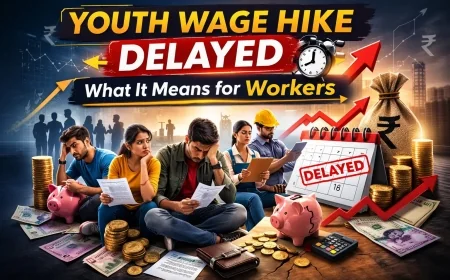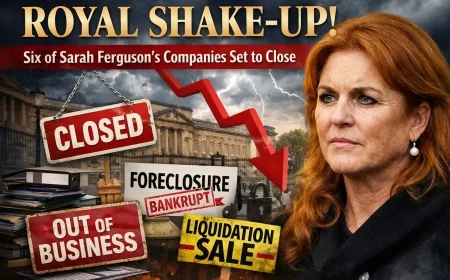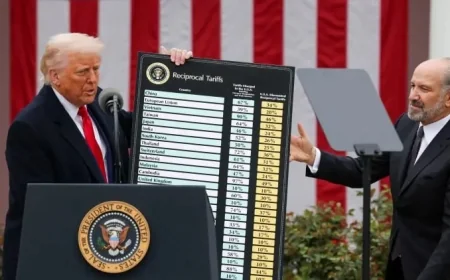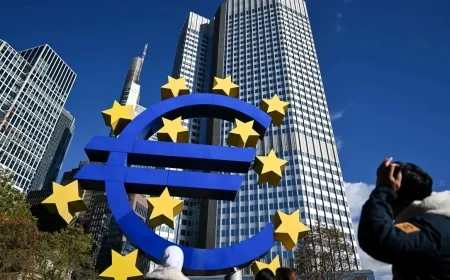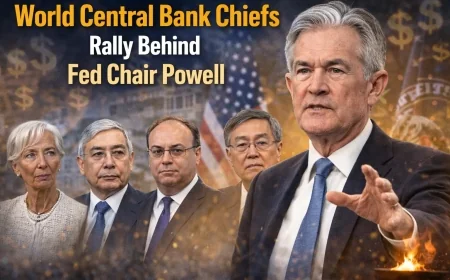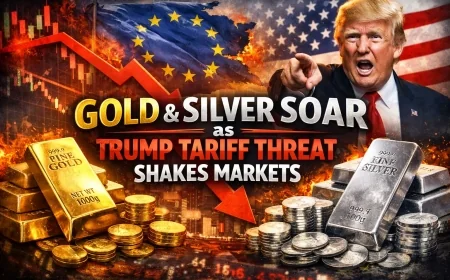From gas to groceries has Trump kept his promise to tackle
President Donald Trump won a second term on his campaign promise to tackle inflation

The rising cost of living was a major concern for voters, and Trump blamed President Joe Biden for it.
He also made broad promises to lower prices for Americans "from day one."
A year after his victory, BBC Verify revisited some of the president's claims.
Groceries
"When I win, I'll lower prices from day one," Trump declared in August 2024 at a press conference surrounded by packaged foods, milk, meat, and eggs.
Official data – including four months into Biden's presidency – shows that grocery prices have risen 2.7% in the 12 months leading up to September 2025, and some items have seen even higher prices:
• Coffee: 18.9%
• Ground beef: 12.9%
• Bananas: 6.9%
Since Trump took office in January, the data also shows that grocery prices have risen every month, except for a dip in April.
Food economics expert Professor David Ortega told BBC Verify, "The US president has very little control over food prices, especially in the short term."
He added that Trump's tariffs are driving up the prices of some foods – one-third of coffee consumed in the US comes from Brazil and is therefore subject to a 50% tariff.
Ortega further explained that Trump's crackdown on illegal immigration has also had an impact, particularly in the agricultural sector, where an estimated 40%, or nearly one million workers, are undocumented.
"As you know, farmers and companies have to raise wages to attract more workers. But assessing these effects in terms of price increases is currently nearly impossible."
KPMG Chief Economist Diane Swonk believes that tariffs and immigration policy changes have contributed to the cost increase.
"There's no doubt that these changes are now manifesting as inflationary pressures," she said.
But she adds that other factors, including weather events, have also contributed.
"In the case of coffee, there were climate-related problems during a very bad season, and the imposition of tariffs on Brazil and Colombia exacerbated this," she said.
A White House official told BBC Verify that President Trump failed to control weather patterns in South America and that the surge in coffee prices was a global phenomenon.
Data tracking coffee prices shows that global prices have risen, peaking in February but now falling.
The same official said the president is addressing rising beef prices by temporarily increasing imports.
Although grocery prices have risen overall, not everything has become more expensive.
When Trump succeeded Biden in January, the price of a dozen large eggs was $4.93 (3.79 pounds), which rose to a record high of $6.23 (4.78 pounds) in March after the bird flu outbreak.
Since then, prices have fallen to $3.49 (2.68 pounds) per dozen.
White House spokesman Kush Desai said, "President Trump's supply-side policies are mitigating Joe Biden's inflation crisis."
Other items that have seen prices decline over the past 12 months include butter and margarine (-2%), ice cream (-0.7%), and frozen vegetables (-0.7%).
Electricity
During his election campaign, Trump promised to drastically reduce electricity bills.
At a rally in August 2024, he said, "In my administration, we will cut energy and electricity prices in half within 12 months, 18 months at the most."
Since he became president, prices have risen.
According to the US Energy Information Administration, the latest data shows that average residential electricity rates will reach 17.62 cents per kilowatt hour (kWh) in August 2025 – up from 15.94 cents per kWh in January 2025.
According to Professor James Sweeney of the Stanford Precourt Institute for Energy, "[Halfing prices] was technically impossible at the time he made this promise."
He explained that electricity prices reflect not only the cost of production, but also the cost of delivering it through "wires, transformers, and everything else."
Professor Sweeney attributes this increase to issues related to both demand and supply.
"The increase in demand is primarily due to data centers. People creating images using artificial intelligence are using a lot of electricity."
Cars
At a September 2024 election rally, Trump extended his promise related to groceries to cars, telling supporters: "We'll lower prices... groceries, cars, everything."
However, according to US vehicle valuation research company Kelley Blue Book, the average price of a new car rose above $50,000 (£38,411) for the first time in September, up from $48,283 (£37,092) in January.
Erin Keating of Cox Automotive explained that car prices typically rise 2-3% annually.
"Tariffs imposed on the automotive industry over the past 12 months,have been nothing but inflationary."
She explained new car prices are increasing by about 4% a year, with tariffs contributing at least one percentage point.
"We really think in 2026 that's going to go higher because most of the manufacturers are holding their fire on raising prices directly due to tariffs, but they're going to have to come in at some point."
Keating did point to tax breaks for people in Trump's spending bill, which she believes may incentivise people to buy new cars.
When asked about the rising price of cars, a White House official told the administration had taken historic regulatory actions to "reverse the left's radical energy scam and save billions annually".
What's Your Reaction?
 Like
0
Like
0
 Dislike
0
Dislike
0
 Love
0
Love
0
 Funny
0
Funny
0
 Angry
0
Angry
0
 Sad
0
Sad
0
 Wow
0
Wow
0
























